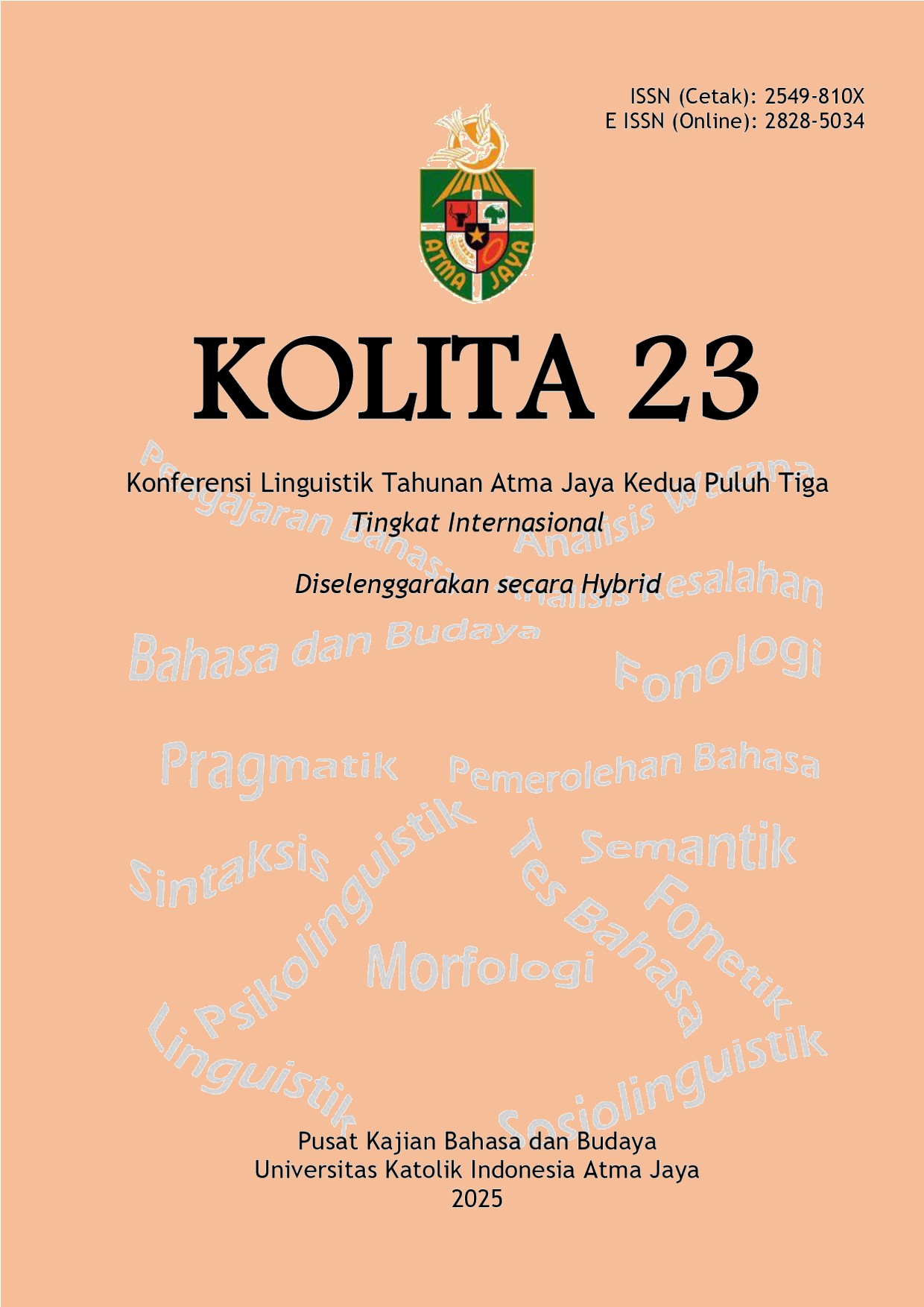POLITENESS OF BREAKING BAD NEWS IN CLASSIC NOVELS AS A CULTURAL REFLECTION
DOI:
https://doi.org/10.25170/kolita.v23i23.7142Keywords:
politeness, bad news, classic novelsAbstract
Delivering bad news is a sensitive act that requires careful communication strategies to reduce its negative impact on the recipient. Politeness plays a crucial role in this process, helping to maintain social harmony and mitigate emotional distress. This study examines politeness strategies in delivering bad news as portrayed in Indonesian classic novels. This research employed a descriptive qualitative approach with a pragmatic perspective. The data consist of utterances conveying bad news found in selected Indonesian classic novels, namely Katak Hendak Jadi Lembu (1935), Salah Pilih (1928), and Sengsara Membawa Nikmat (1929). The study applied Leech's politeness theory as the analytical framework to identify the strategies used in these texts. The findings reveal that both adherence to and violations of politeness maxims are present in the novels. These variations are influenced by key contextual factors such as Social Distance (D), Power (P), and Rank of Imposition (R). The way bad news is delivered depends on the relationship between the speaker and the recipient, the social hierarchy, and the severity of the message being conveyed. In some cases, indirect speech, euphemisms, and expressions of sympathy are used to soften the impact, whereas in others, direct and blunt language is employed, often reflecting power dynamics or urgency. The study also finds that politeness strategies in these novels align with cultural values such as respect for elders, hierarchical social structures, and collectivist tendencies in Indonesian society. For example, the form of indirect speech in conveying bad news is found in the Novel Katak Hendak Jadi Lembu in the speech of Raden Natanegara who conveys the bad news that he cannot lend money to Suria. In his speech, he did not directly state that he rejected the request, but began the rejection by stating his ideal condition first. This reflects the tendency of Indonesian society who tend to want to soften their speech which may have a negative impact by conveying the intention indirectly. Another example is in the Novel Salah Pilih, when Asri wanted to tell his mother that his wife's behavior was not as he expected. He used the word 'kebalikannya' as a euphemism to soften the term that refers to a bad situation. This can show a reflection of respect for older people, which is in line with Indonesian culture. This study provides valuable insights into Indonesian linguistic politeness and its cultural significance. By analyzing politeness strategies in classic literature, it sheds light on historical communication norms and how they reflect societal values.






